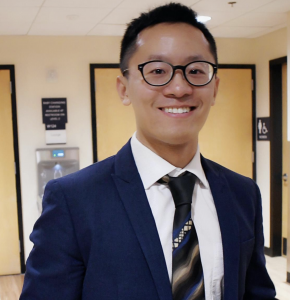This is a webinar event.
 Speaker: Yangzhi Zhao, Postdoctoral Scholar in the Applied Energy Materials Group at Lawrence Berkeley National Laboratory (LBNL)
Speaker: Yangzhi Zhao, Postdoctoral Scholar in the Applied Energy Materials Group at Lawrence Berkeley National Laboratory (LBNL)
Title: Enable Li-S Battery from Li2S Synthesis to Electrolyte Engineering
Abstract: The lithium-sulfur (Li-S ) battery system has been widely considered as a promising and enabling technology for weight-critical applications such as electric vehicles (EVs), aviation and aerospace missions. This is essentially attributed to its high theoretical energy density (2600Wh/kg vs. ~400Wh/kg for Li-ion), and the low cost/global abundance of sulfur. However, despite the effort of decades, the commercial Li-S battery still remains elusive due to the commonly known challenges such as poor conductivity of sulfur based material, electrolyte-soluble intermediate species, reactive Li metal anode, which causes low coulombic efficiency (CE) and poor cycling stability of Li-S cells. Effective approach to address those challenges requires combined efforts of delicate design of electrode architecture and electrolyte, as well as appropriate interface engineering strategies. In this talk, I will briefly cover my research effort at Lawrence Berkeley National Lab to address those challenges by using a specially designed fluorinated ether electrolyte, and demonstrate the underlying solvation mechanism. Then, I will switch gears and mainly talk about my graduate research work on synthesizing Li2S nanocrystals (NCs), the key material for fabricating both sulfide based cathode and solid state electrolyte. Li2S is typically produced in micrometers size by high temperature carbothermal reduction which requires mechanical ball mill to produce the nano-sized materials desirable for battery applications. We have recently developed a green solution-based synthesis approach by contacting metalorganic solutions with hydrogen sulfide at ambient temperature, employing bubble columns for scalable production. Benefits include complete abatement of H2S, recovery of the valuable H2 stored within, atom economy approaching unity and nominally 100% Li utilization. Control of nanocrystal size and uniformity is demonstrated through choice of solvent and manipulation of processing conditions such as precursor concentration and solvent evaporation rate. Li2S cathodes fabricated using small NCs (<10 nm) achieved capacities approaching the theoretical limit (1166 mAh/g), exhibiting good rate capability and promising stability. Control of size also provides many benefits for solid-state electrolyte production, which is demonstrated in 70Li2S-30P2S5 model system: The ball milling time to make desired glass was reduced by >70% relative to commercial Li2S; SSE formed at optimum condition exhibited high ionic conductivity (~10-5 S/cm), low electronic conductivity (~10-10 S/cm) and appropriate activation energy barrier (~35KJ/mol).
Bio: Dr. Yangzhi Zhao is currently a postdoc scholar in the Applied Energy Materials Group at Lawrence Berkeley National Laboratory (LBNL). His research interests mainly focus on developing enabling technologies for next-generation rechargeable battery. He pays particular attention on chemical/physical interactions at the interface, the underlying size-structure-performance relationship, and development of green scalable approaches for chemical/materials synthesis and processing. Yangzhi received his PhD degree in Materials Science from Colorado School of Mines in August, 2019, under supervision of Prof. Colin Wolden and Prof. Yongan Yang. At Mines, he conducted thesis research on developing a scalable solution-based synthesis approach of Li2S nanocrystals for both advanced cathodes and solid state electrolyte applications. While at LBNL, Yangzhi is leading the research project on developing fluorinated micelle electrolyte for Li-S battery and high voltage NMC cathode application.
Seminar Host: Steve Martin
To Join: https://iastate.webex.com/iastate/j.php?MTID=m685ff0e14f327024ded33187d40ed02d